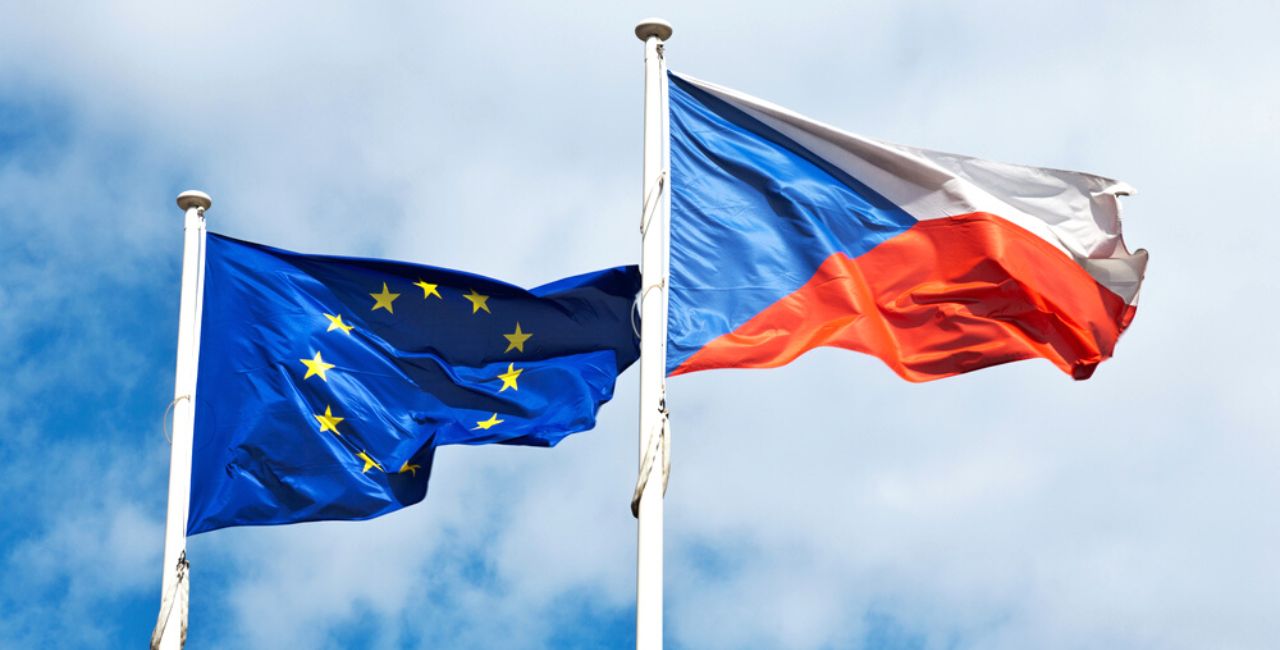The last time the Czech Republic held the rotating EU presidency, in early 2009, the continent was still reeling from the global financial crisis and the portents of the European sovereign debt crisis were starting to appear.
On Friday, 1 July, it again took up the presidency of the Council of the EU during another period of emergency.
In an exercise in crisis management, the Czech Republic aims to bolster regional cooperation in support of Ukraine and find some common solutions to spiking inflation and the ongoing energy crisis.
Prague wants to get more EU money and weapons into Ukraine
Prague has affirmed that it wants to do the utmost to get more of the bloc’s money and weapons flowing into Ukraine, “using all instruments and programs offered by the EU,” according to the presidency’s formal list of goals.
The Czech Foreign Minister Jan Lipavský vowed last week that his country “will continue to support Ukraine militarily and with material aid and we will continue to strongly back the country’s integrity.”
The Czech Republic’s job was made somewhat easier after Ukraine was awarded EU candidate status last week — one of the stated goals of its presidency. Its work will now be to move that process along.
However, the task has become harder as the European unity witnessed in the first months after Russia’s invasion of Ukraine has started to disentangle.
There are fiercer debates about whether some countries, such as Germany, are doing enough to militarily support Kyiv. The question of accepting Russian gas imports has also become more heated.
Helping Ukrainians now and in the future
Analysts say the Czech Republic will prioritize less polarising issues.
“The government understands the need to create coalitions and work as a facilitator of the EU consensus,” said Karaskova.
One will be cementing a more equitable and sustainable policy for Ukrainian refugees within the EU.
“The EU must take all steps to help best deal with the unprecedented refugee wave,” the Czech EU presidency mission statement reads. “This will require the mobilisation of all available resources and expertise as well as their coordinated use.”
The second task is to advance talks over the reconstruction of Ukraine once the war is over.
This could be difficult, analysts reckon. Debates will be centred on how much EU countries should contribute and how the money will likely be spent. The EU may divide once again between its frugal and spendthrift members.
A Czech foreign ministry official also said they expect a fight over who should be allowed to participate in the reconstruction.
The Czech presidency’s mission statement explicitly states that financial resources will be needed from “across the free world”, which some analysts have interpreted as a reference to China, one of the world’s largest contributors to foreign investment.
Climate change and energy independence
As a corollary to the war in Ukraine, the Czech Republic’s second priority as EU president will be energy transition, said Filip Kostelka, a professor at the European University Institute.
“It is about finding a common ground for becoming energetically independent of Russia and limiting CO² emissions,” he noted.
Again, the Czech Republic’s load was eased slightly helped after the European Council agreed on 28 June to two of the main general approaches to the Fit for 55 policy, the EU’s environmental centrepiece.
It agreed to an EU-level target of 40% of energy from renewable sources in the overall energy mix by 2030, as well as a commitment to increase the integration of renewables in certain sectors of the Europe-wide economy.
“Fit for 55 creates the basis for decarbonization,” says the Czech government’s presidency statement. “However, the Czech Presidency will focus especially on the thorough implementation of the main short-term objective.”
Although some of the programme’s policies were accepted by the European Council days before the Czech presidency begins, an urgent task will be securing the European Parliament’s approval for labelling nuclear and natural gas as green investments.
This will likely be debated in July. The Czech Republic has been one of the main proponents of nuclear energy for years.
Support Prague Morning!
We are proud to provide our readers from around the world with independent, and unbiased news for free.
Our dedicated team supports the local community, foreign residents and visitors of all nationalities through our website, social media and newsletter.
We appreciate that not everyone can afford to pay for our services but if you are able to, we ask you to support Prague Morning by making a contribution – no matter how small 🙂 .




